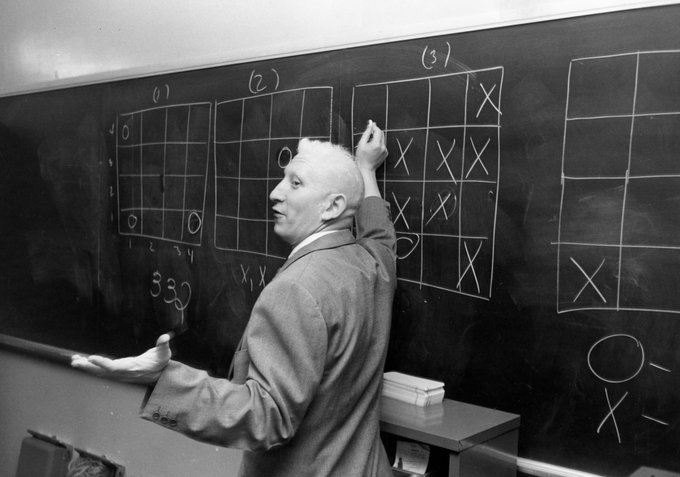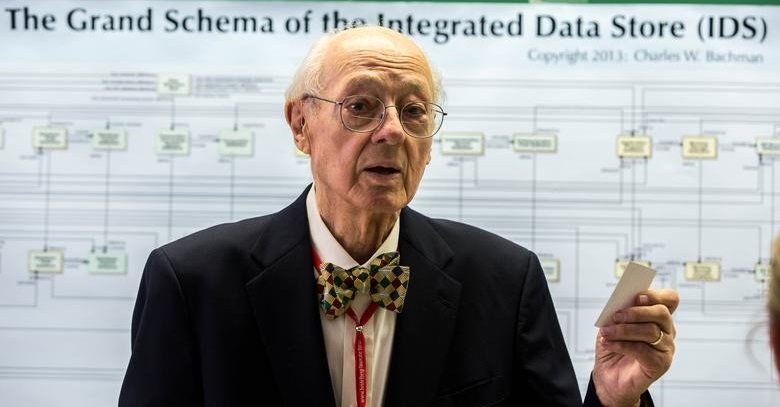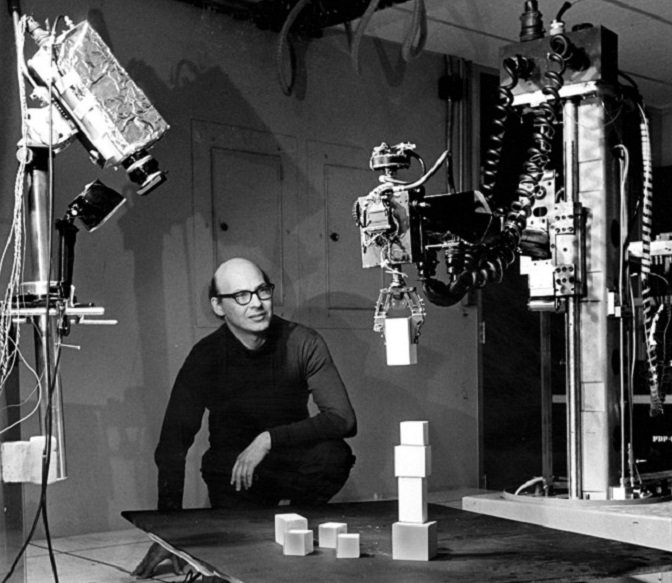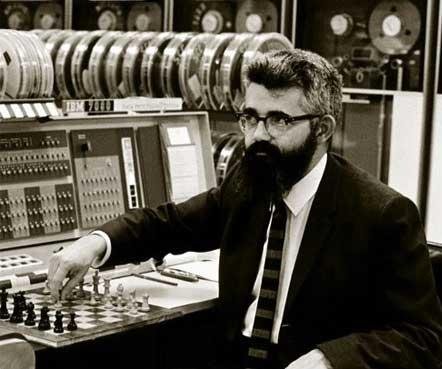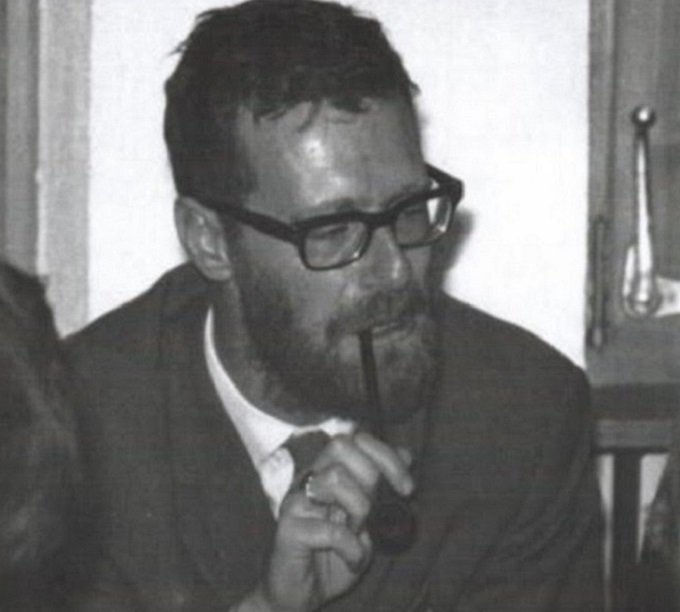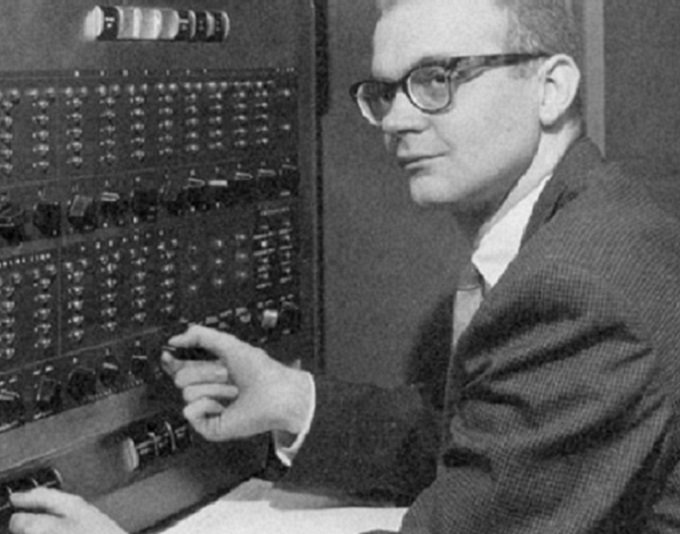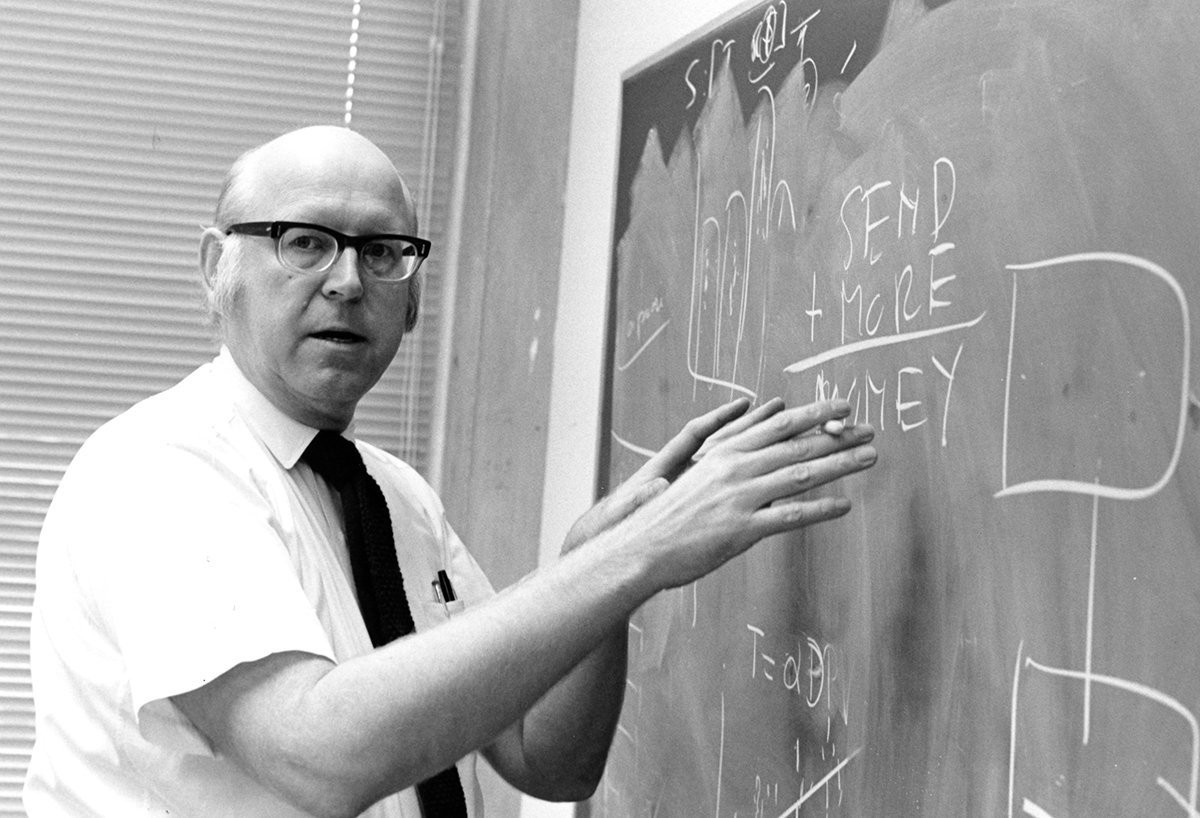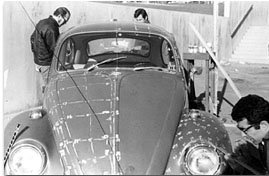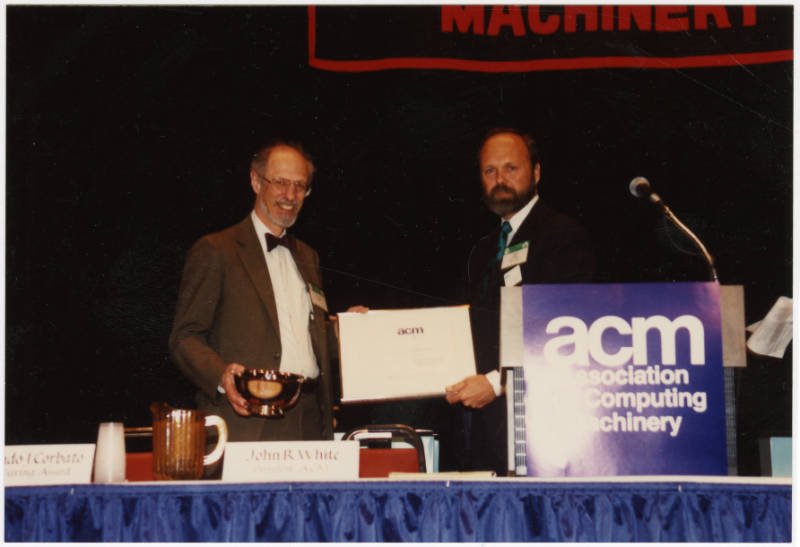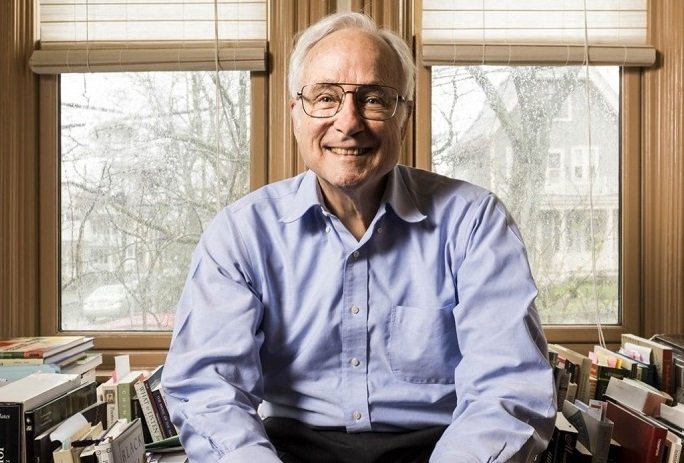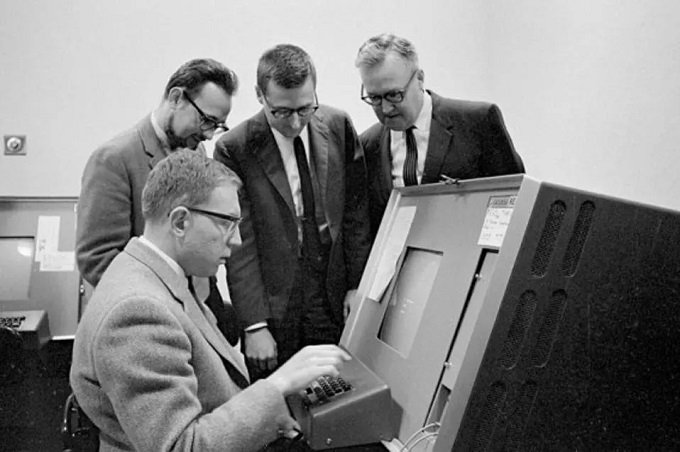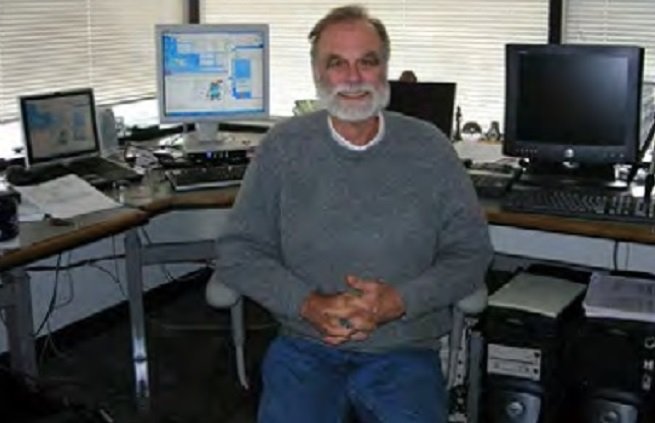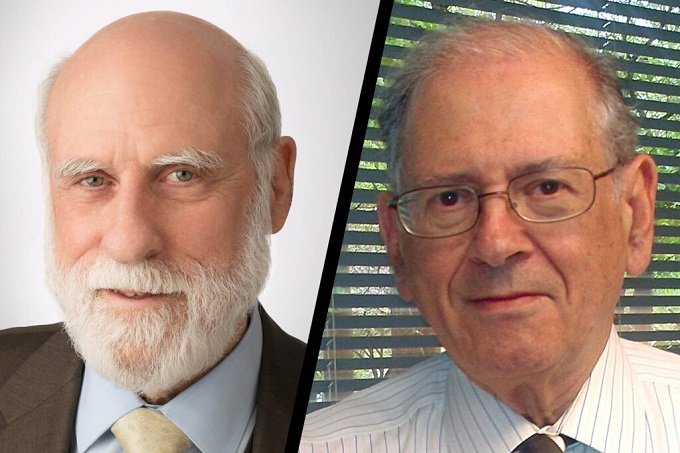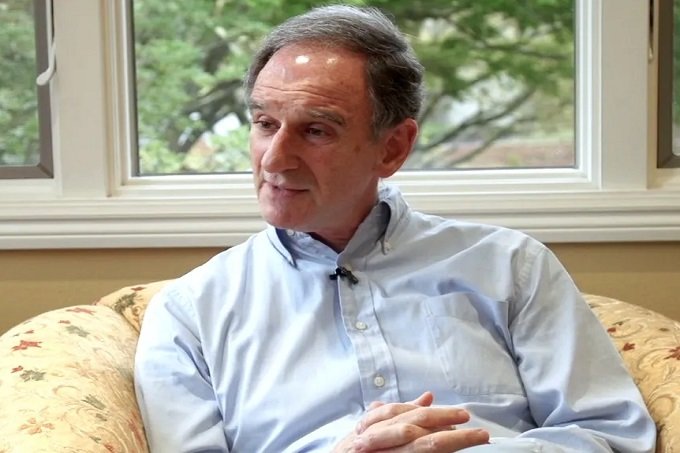Explore the Babbage Institute's connection to Alan Turing
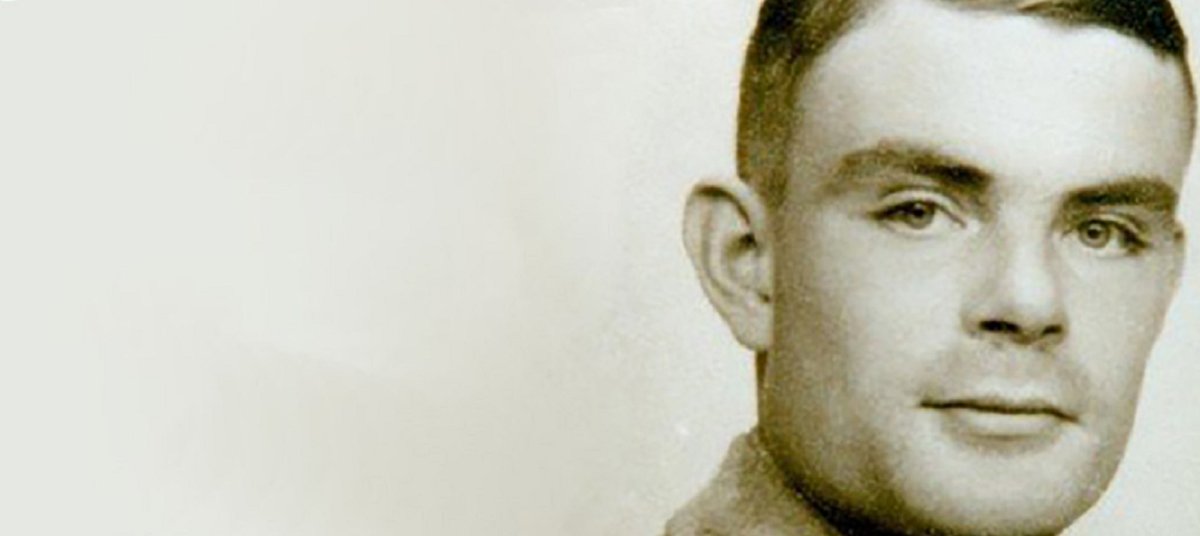
Through the Institute's relationship with the Association for Computing Machinery (ACM), and other research and collection development work, both CBI and the University of Minnesota (UMN) have been fortunate to work with those who have connections to Alan Turing and the ACM Turing Award recipients.
Over the years, these individuals have graciously donated their time and papers to CBI. The Institute now houses a collection that contains 14 of the Turing Award recipients, including Alan Perlis, the first person to win the award, and Charles W. Bachman, a dedicated friend and supporter of CBI.
In 2012, CBI, along with UMN’s Institute for Mathematics and its Applications (IMA) hosted a lecture with Andrew Hodges, emeritus senior research fellow at Wadham College, Oxford. and author of "Alan Turing: The Enigma,” which is now held in the UMN Digital Archives.
The A.M. Turing Award, sometimes referred to as the "Nobel Prize of Computing," was named in honor of Alan Mathison Turing (1912–1954), a British mathematician and computer scientist. He made fundamental advances in computer architecture, algorithms, formalization of computing, and artificial intelligence. Turing was also instrumental in British code-breaking work during World War II.
This section of the CBI website brings together items for those interested in learning more about how the “Father of modern computing” impacted technology and those who carry on his vision.
PAPERS
Known as one of the first 20th century inventors of programming languages, Perlis received the inaugural Turing Award in 1966 "for his influence in the area of advanced programming techniques and compiler construction."
Bachman, who was a life-long supporter to the Babbage Institute, received the Turing Award in 1973 "for his outstanding contributions to database technology." He is also considered the inventor of databases.
+
EXPLORE THE COLLECTION
LECTURE
Andrew Hodges, author of "Alan Turing: The Enigma," was invited to speak at the UMN's Institute for Mathematics and its Applications in December of 2012. CBI was a co-sponsor of the lecture. He lecture, entitled, "Alan Turing: The Power of Mathematical Discovery" discussed Turing's short and extraordinary life, which had great consequences for modern computers, for the philosophy of mind, and for the outcome of the Second World War. But all these things, and more, sprang from his innovative work in mathematics. Andrew Hodges' talk illustrated the way that Turing seized on a great range of mathematical ideas and turned them into world-changing discoveries.
ORAL HISTORIES
Marvin Minsky (1969)
Minsky received the award "for his central role in creating, shaping, promoting, and advancing the field of Artificial Intelligence."
John McCarthy (1971)
McCarthy, considered to be the 'Father of Artificial Intelligence' received the award for his lecture "The Present State of Research on Artificial Intelligence," which discussed the work which he achieved recognition for.
Edsger W. Dijkstra (1972)
Dijkstra received the award "for fundamental contributions to programming as a high, intellectual challenge; for eloquent insistence and practical demonstration that programs should be composed correctly, not just debugged into correctness; for illuminating perception of problems at the foundations of program design."
Donald Ervin “Don” Knuth (1974)
Knuth received the award "for his major contributions to the analysis of algorithms and the design of programming languages, and in particular for his contributions to the "art of computer programming" through his well-known books in a continuous series by this title."
Allen Newell (1975)
Newell, along with Herbert A. Simon received the award for making "basic contributions to artificial intelligence, the psychology of human cognition, and list processing."
Ivan Sutherland (1988)
Considered the 'Father of computer graphics', Sutherland won the Turing Award "for his pioneering and visionary contributions to computer graphics."
Fernando Corbató (1990)
Corbató, who came up with the idea of using passwords for computers, received the award "for his pioneering work organizing the concepts and leading the development of the general-purpose, large-scale, time-sharing and resource-sharing computer systems, CTSS and Multics."
Butler Lampson (1992)
While working at Xerox PARC in 1972, Lampson envisioned the Xerox Alto. With its three-button mouse and full-page-sized monitor, it became know as the first 'personal computer.' Lampson received the award "for contributions to the development of distributed, personal computing environments and the technology for their implementation: workstations, networks, operating systems, programming systems, displays, security and document publishing."
Edward Feigenbaum (1994)
Feigenbaum, who worked under another Turing winner, Herbert A. Simon, was a pioneer in the design and implementation of AI systems. He, along with Raj Reddy, won the award "for design and construction of large scale artificial intelligence systems, demonstrating the practical importance and potential commercial impact of artificial intelligence technology."
James Nicholas Gray (1998)
Gray, whose work included the development of Microsoft TerraServer, a free searchable database of satellite images of the Earth’s surface, received the award "for seminal contributions to database and transaction processing research and technical leadership in system implementation."
Vinton G. Cerf & Robert E. Kahn (2004)
Cerf and Kahn received the award "for pioneering work on internetworking, including the design and implementation of the Internet's basic communications protocols, TCP/IP, and for inspired leadership in networking."
Martin Hellman (2015)
Hellman, who was interviewed by CBI a little more than 10 years prior to winning, received the award "for inventing and promulgating both asymmetric public-key cryptography, including its application to digital signatures, and a practical cryptographic key-exchange method."
